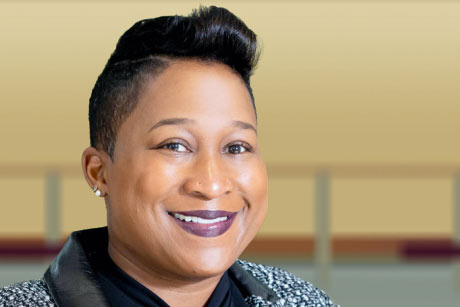Race and the Threat of Job Loss from Automation

Kristen Broady, a fellow at the Brookings Institution’s Metropolitan Policy Program and professor of financial economics at Dillard University in New Orleans
The risk of job loss because of automation is often discussed in the news. But how those risks may be especially higher for Black and Hispanic workers is rarely mentioned. And that’s concerning to Kristen Broady, a fellow at the Brookings Metropolitan Policy Program and professor of financial economics at Dillard University.
Broady and her co-authors recently analyzed the risk of displacement from automation for jobs in which full demographic data were available. The resulting Brookings report, “Race and Jobs at Risk of Being Automated in the Age of COVID-19,” provided an analysis of the 30 most numerous jobs at low risk of automation and the 30 most numerous jobs at high risk.
“Black people are overrepresented in 11 of the jobs at high risk of being automated. Hispanic workers are overrepresented in all of those (11 jobs), plus two additional ones,” she pointed out in a recent podcast interview with the St. Louis Fed. “However, Black people are only overrepresented in five of the jobs at low risk of being automated, and Hispanic people are not overrepresented in any,” she said.
In a Women in Economics Podcast Series episode, Broady discussed her research on race and gender, efforts to promote historically black colleges and universities (HBCUs) and her experience as a consultant on the BET TV series The Quad. The episode includes a transcript of the interview.
Broady was educated at HBCUs in Mississippi. She received an undergraduate degree from Alcorn State University and later earned both a master’s degree in business administration and a doctorate in business administration economics at Jackson State University.
“I try to promote HBCUs wherever I can,” she said.
To hear more from Kristen Broady and other women making their marks in the field of economics, register to attend the St. Louis Fed’s 2022 virtual Women in Economics Symposium, Feb. 23 and 24.
Citation
ldquoRace and the Threat of Job Loss from Automation,rdquo St. Louis Fed On the Economy, Jan. 24, 2022.
This blog offers commentary, analysis and data from our economists and experts. Views expressed are not necessarily those of the St. Louis Fed or Federal Reserve System.
Email Us
All other blog-related questions

